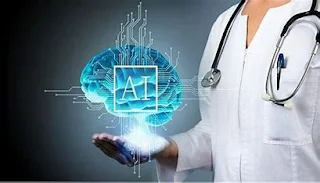
In healthcare, AI is used to develop personalized treatments and improve patient outcomes. AI algorithms analyze vast amounts of medical data to identify patterns and insights that may be overlooked by human doctors. This helps in making accurate diagnoses and developing effective treatments.
AI also plays a crucial role in medical imaging, such as X-rays and MRIs. AI algorithms can detect early signs of diseases or abnormalities, aiding doctors in catching diseases early and improving patient outcomes.
In finance, AI analyzes vast amounts of financial data to uncover patterns and insights beyond human analysts' reach. AI helps banks and financial institutions make better investment decisions, manage risk more effectively, and detect fraud quickly.
AI-powered chatbots enhance customer service by answering questions and resolving issues in real-time. This improves customer satisfaction and reduces the workload of customer service representatives.
In transportation, AI is used to develop self-driving cars and improve traffic management. AI algorithms analyze traffic patterns to optimize traffic flow, reduce congestion, and enhance road safety.
Self-driving cars powered by AI reduce accident risks and improve fuel efficiency. AI algorithms analyze real-time data to make split-second decisions, such as braking or changing lanes, enhancing the overall driving experience.
Conclusion
AI is transforming industries from healthcare to finance and transportation. By analyzing vast amounts of data, AI helps professionals make better decisions and improves outcomes for customers and patients. As AI evolves and becomes more sophisticated, we can expect even more significant breakthroughs in the coming years.
Disclaimer: Opinions expressed in comments are those of the comment writers alone and do not reflect or represent the views of Victor Duru.


Comments